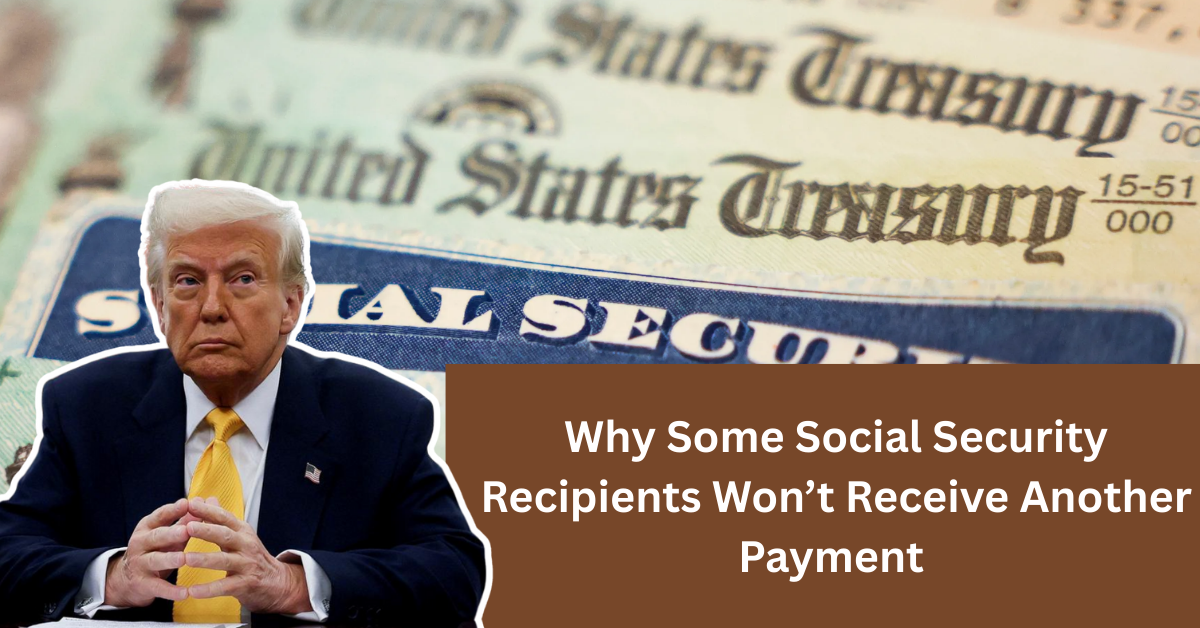Social Security payments are a crucial support system for millions of Americans, helping cover essential costs like housing, food, and medical bills. Many recipients depend on these regular payments, so any disruption can cause worry and confusion. Recently, some Social Security recipients have noticed they won’t be receiving their payment this month, raising questions about the reasons behind these delays or missed payments.
Understanding why these payment interruptions happen is important, especially for younger readers who might be new to how Social Security works or are planning their financial future. This article will explain clearly and simply why some people don’t get their expected Social Security payments and what steps they can take if this affects them.
What is Social Security and Who Gets Payments?
Social Security is a U.S. government program that provides financial assistance to retired workers, disabled individuals, and survivors of deceased workers. Most people who have worked and paid Social Security taxes qualify for these benefits. The payments help provide a steady income source for people who are no longer working or who face challenges such as disability.
Payments are usually made every month, and the amount depends on factors like how long someone worked and how much they earned. Since it is such an important part of many people’s income, understanding payment schedules and reasons for any missed payments is key.
Why Some Social Security Payments Might Be Delayed or Missed
There are several reasons why some recipients might not receive their Social Security payment this month. These reasons vary from administrative updates to eligibility changes. Below are some of the most common explanations:
1. Payment Schedule Changes
Social Security payments are distributed on different days of the month depending on the recipient’s birthday or type of benefit. Sometimes, this schedule can change due to weekends, holidays, or government decisions, causing a payment to arrive earlier or later than usual.
While most people receive their payment predictably, these small shifts in timing can sometimes be mistaken for a missed payment. Recipients should check the Social Security Administration’s official payment calendar to confirm the exact payment date.
2. Automatic Payment Suspension Due to Death Reports
If the Social Security Administration (SSA) receives a report that a recipient has died, payments to that person are immediately stopped. Sometimes, this information is incorrect or based on mistaken identity. In those cases, the SSA suspends payments until they confirm the recipient’s status.
If you know someone who has not received their Social Security payment and has not passed away, it is important to contact the SSA to clear up any confusion.
3. Income or Work Limit Rules
Some Social Security benefits decrease or stop if the recipient earns too much income through work while receiving benefits before the full retirement age. This is known as the earnings test. If your income goes over the set limit, your payments may be reduced or paused for certain months.
Younger recipients or those still working part-time should watch carefully for this rule, as income limits and rules vary depending on age and situation.
4. Failure to Respond to SSA Requests
The Social Security Administration sometimes requires recipients to provide updated information or complete paperwork to continue receiving benefits. Failure to respond to these requests can cause payments to be suspended until the information is provided.
Common requests include verifying identity, citizenship status, or living arrangements. Always respond promptly to SSA letters or notices to avoid payment delays.
5. Changes in Benefit Eligibility
Benefit eligibility can change due to several reasons, such as returning to work, moving abroad, or changes in family circumstances. If the SSA determines that a recipient no longer qualifies for benefits, payments will stop. Sometimes, these changes happen automatically after an annual review or other checks.
It is important to keep the SSA informed about any major life changes to prevent surprises or suspensions.
What to Do If You Miss Your Social Security Payment
If you were expecting a Social Security payment but it didn’t arrive, don’t panic. The first step is to check the SSA’s official payment schedule for your group. This will help you confirm if the payment is just late or delayed due to holidays or weekends.
If the payment is genuinely missing, you can contact the Social Security Administration directly. Use their toll-free number or visit a local office to ask about your payment status. Make sure to have your Social Security number and personal details handy for quicker service.
How to Stay Updated and Avoid Payment Issues
To avoid missing payments, keep your contact information updated with the SSA. This includes your address, phone number, and email. Enroll in online services through the SSA website where you can check your payment history, manage your profile, and receive official notifications.
Respond promptly to any letters or messages from the SSA. Signing up for direct deposit of payments to your bank account also helps avoid delays that come with mailing paper checks.
Conclusion: Stay Informed and Proactive About Your Social Security Payments
Social Security payments are vital for many Americans’ financial well-being, and missing a payment can cause unnecessary stress. Understanding the common reasons for payment delays or stops can help recipients take quick action. Whether it’s a schedule change, an SSA request, or eligibility updates, staying informed and proactive ensures you don’t miss out on your benefits.
If you or someone you know is affected by a missed Social Security payment, use the available resources to get help. Contact the SSA, check the payment schedule, and keep your records up to date to keep your payments flowing smoothly.



